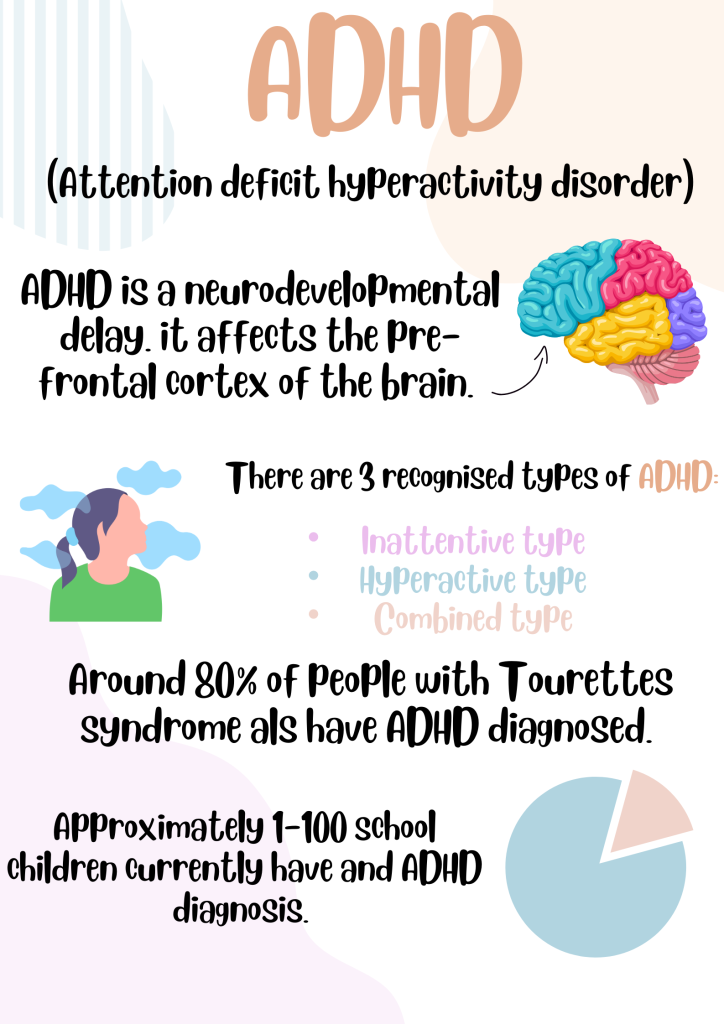Attention Deficit Hyperactivity Disorder (ADHD) is a neurodevelopmental disorder that affects individuals’ ability to focus, control impulses, and regulate energy levels. It’s commonly associated with children, but it often persists into adolescence and adulthood. Managing ADHD in an academic setting can be challenging, both for students and educators. However, with the right strategies and support, individuals with ADHD can thrive academically. This article explores tips for students and educators to foster academic success in individuals with ADHD.
Comprehending ADHD:
Before delving into tips for academic success, it’s essential to understand ADHD. ADHD is characterized by three main symptoms: inattention, hyperactivity, and impulsivity. Individuals with ADHD may struggle to maintain focus on tasks, follow instructions, stay organized, and manage their time effectively. These challenges can significantly impact academic performance and overall well-being.
Tips for Students:
Understand Your ADHD:
The first step towards academic success is understanding how ADHD affects you personally. Learn about your specific challenges and strengths. Understanding your ADHD can help you develop effective coping strategies.
Develop a Routine:
Establishing a consistent daily routine can help manage ADHD symptoms. Set specific times for studying, attending classes, and other activities. Incorporate breaks into your schedule to prevent burnout and maintain focus.
Use Tools and Technology:
Leverage technology to your advantage. Use apps and tools designed for individuals with ADHD to stay organized, manage tasks, and maintain focus. Calendar apps, task managers, and note-taking apps can be particularly helpful.
Break Tasks into Smaller Steps:
Large tasks can feel overwhelming for individuals with ADHD. Break them down into smaller, more manageable steps. Focus on completing one step at a time, celebrating small victories along the way.
Create a Distraction-Free Environment:
Minimize distractions in your study environment. Find a quiet space where you can focus without interruptions. Consider using noise-canceling headphones or white noise machines to block out distractions.
Utilize Visual Aids:
Visual aids can help individuals with ADHD better understand and retain information. Use colorful charts, diagrams, and visual organizers to break down complex concepts and improve comprehension.
Practice Self-Care:
Prioritize self-care to support your overall well-being. Get regular exercise, eat a balanced diet, and prioritize sleep. Managing stress and taking care of your physical and mental health can improve focus and academic performance.
Advocate for Yourself:
Don’t be afraid to advocate for your needs. Communicate with your teachers or professors about your ADHD and any accommodations you may require. Seek out resources and support services available at your school or university.
Tips for Educators:
Educate Yourself about ADHD:
Educators play a crucial role in supporting students with ADHD. Take the time to educate yourself about ADHD, including its symptoms, challenges, and strengths. Understanding ADHD can help you better support students in your classroom.
Provide Structure and Consistency:
Establish clear routines and expectations in the classroom. Provide written schedules, assignment deadlines, and clear instructions for tasks. Consistency and predictability can help students with ADHD better manage their symptoms.
Offer Flexibility and Accommodations:
Recognize that students with ADHD may require accommodations to succeed academically. Offer flexibility with deadlines, provide extra time for tasks or tests, and allow for breaks during long periods of focus.
Encourage Organization and Time Management Skills:
Teach organization and time management skills to help students with ADHD stay on track. Provide strategies for breaking down tasks, setting goals, and prioritizing assignments. Encourage the use of planners and organizational tools.
Minimize Distractions:
Create a learning environment that minimizes distractions. Arrange desks to reduce visual distractions, limit unnecessary noise, and provide alternative seating options for students who may need them. Encourage the use of noise-canceling headphones if needed.
Provide Positive Reinforcement:
Recognize and celebrate the achievements of students with ADHD. Provide positive reinforcement for their efforts and progress, no matter how small. Encouragement and praise can boost motivation and self-confidence.
Offer Emotional Support:
Students with ADHD may experience frustration, anxiety, or low self-esteem due to their challenges. Offer emotional support and encouragement, and create a safe space for students to express their feelings and seek help when needed.
Collaborate with Support Services:
Work closely with support services, such as special education teachers, counselors, and school psychologists, to provide comprehensive support for students with ADHD. Collaborate on implementing accommodations and interventions to meet students’ individual needs.
In summary:
ADHD presents unique challenges for both students and educators in the academic setting. However, with understanding, support, and the right strategies in place, individuals with ADHD can achieve academic success. By implementing the tips outlined in this article, students can learn to manage their symptoms effectively and thrive academically, while educators can create inclusive learning environments that support the diverse needs of all students, including those with ADHD. Together, we can empower individuals with ADHD to reach their full potential in the classroom and beyond.
